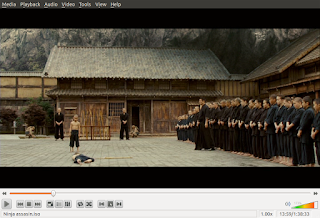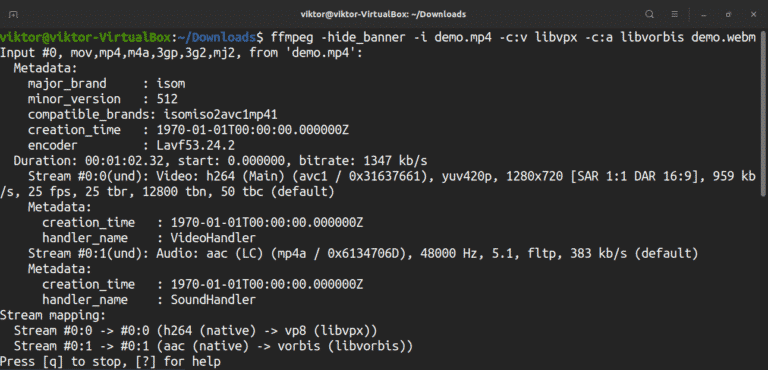

In your output you will see something similar to this: Outputįfmpeg version 4.2.4-1ubuntu0.1 Copyright (c) 2000-2020 the FFmpeg developersīuilt with gcc 9 (Ubuntu 9.3.0-10ubuntu2) Then, you can install FFmpeg with the following command: sudo apt install ffmpegĪfter your installation is completed, you can verify it by checking its version: ffmpeg -version Installing FFmpeg on Ubuntu 20.04įFmpeg packages are available in the default Ubuntu repository.įirst, update your local package index with the following command: sudo apt update To do this, you can follow our article about the Initial Server Setup with Ubuntu 20.04. How To Install and Use FFmpeg on Ubuntu 20.04īefore you start to install FFmpeg you need to log in to your server as a non-root user with sudo privileges. With its advanced features, it supports a wide range of audio and video codec support. It is basically a command-line tool that uses commands to work on audio and video formats. With the help of its expanded libraries we can convert, edit, repair, and format any video format. Here is the list of the FFmpeg basic command options used with FFmpeg command-line tool.In this article, we want to teach you how to Install and Use FFmpeg on Ubuntu 20.04.įFmpeg is one such software platform, especially for multimedia files. sudo apt-get updateĪfter successfully install FFmpeg, let’s check the version installed on the system. This will also install many packages for the dependencies. Step 2 – Install FFmpeg on UbuntuĪfter enabling the PPA, Lets exec below commands to install ffmpeg on Ubuntu system. This PPA contains packages for Ubuntu 18.04 (Bionic) and 16.04 LTS (Xenial) only.

sudo add-apt-repository ppa:jonathonf/ffmpeg-4 Execute below command to add FFmpeg PPA on Ubuntu system. To install the latest version, you need to configure PPA on your system. Step 1 – Setup FFmpeg PPAįFmpeg 4 is the latest available version for installation on Ubuntu. This tutorial will help you to install FFmpeg on Ubuntu 18.04 LTS & 16.04 LTS systems with easy steps.

FFmpeg includes libavcodec audio/video codec library in it. It’s also useful to convert multimedia files between various formats. FFmpeg is a cross-platform solution for streaming audio and video as well as recording and conversion.


 0 kommentar(er)
0 kommentar(er)
